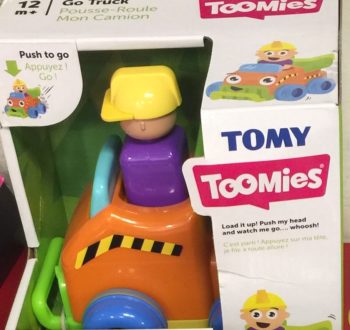Transportation and Construction Play Activities
When learning about various types of transportation vehicles and how they can be used in the community, suggested materials and activities include the following:
Materials:
- Stories or books on transportation and construction that can be discussed include:
- There’s a Hole in the Road (by Mary Ann Burke published on GenParenting.com)
- Goodnight, Goodnight Construction Site
- Wheels at Work Construction book
- Find it: Things That Go
- Spot the Difference Building Site
- Foam bath vehicles
- Transportation and Construction vehicles (i.e. TOMY TOOMies dump truck)
- Building materials (i.e. Roylco Straw Connectors)
- Vehicle speedways (i.e. Blu Track)

Mary Ann Burke, Ed.D., Digital Education Expert, is a substitute distance learning teacher for Oak Grove School District in San Jose, California and the author of STUDENT-ENGAGED ASSESSMENT: Strategies to Empower All Learners (Rowman & Littlefield: 2020). Dr. Burke creates digital language arts and substitute teaching K – 12 activities for teachers and parents. She is the Cofounder of the Genparenting.com blog. Burke is the former Director II of Categorical & Special Projects for the Santa Clara County Office of Education that supports 31 school districts serving 272,321 students in Santa Clara County. She is also a previous Director – State & Federal Compliance for Oakland Unified School District, the former Director – Grantwriter for the Compton Unified School District, and was the initial VISTA Director for the Community Partnership Coalition in southern California. Much of her work focuses on creating innovative digital trainings and partnership programs for teachers and families to support students’ learning. These programs were featured as a best practice at a National Title I Conference, California’s Title I Conferences, AERA Conferences, an ASCD Conference, the NASSP Conference, and statewide educator conferences.
 Transportation and Construction Play with Kids
Transportation and Construction Play with Kids 


 the backyard, my friend’s son, Nathan, stumbled and fell hard on his knee. The knee was severely bruised and bloody. Shockingly, Nathan withheld any emotion although he was in extreme pain. My friend and I were alarmed that he was too self-conscious and afraid to express his true emotions. When approaching Nathan about his injury, my friend responded to his distress by:
the backyard, my friend’s son, Nathan, stumbled and fell hard on his knee. The knee was severely bruised and bloody. Shockingly, Nathan withheld any emotion although he was in extreme pain. My friend and I were alarmed that he was too self-conscious and afraid to express his true emotions. When approaching Nathan about his injury, my friend responded to his distress by: Catch a Bad Case of the Travel Bug
Catch a Bad Case of the Travel Bug